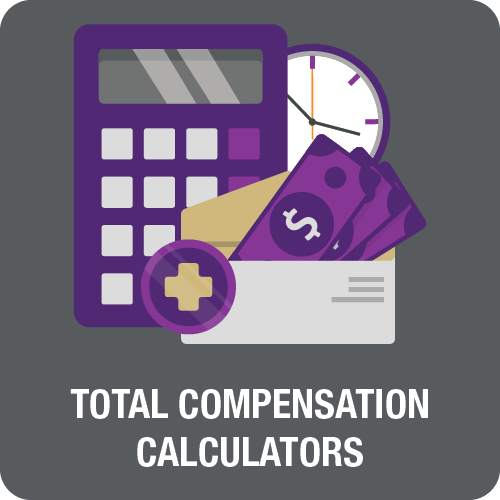Compensation [1]
Compensation is an important piece of employment, and CU focuses on rewarding its employees fairly and competitively. CU has an established Pay Philosophy [2]and ensures that all pay practices are reviewed regularly, compliant with new laws, and is clearly understood and transparent.
For more detailed information for active System employees, please visit the System HR Compensation SharePoint site [3].
Employee compensation encompasses salary in combination with employee benefits including health insurance, retirement plans and paid leave. This is crucial to keep in mind considering the Equal Pay Act job posting requirements that all compensation be listed. These calculators help you learn more about total compensation for staff. See calculators [4]Total Compensation Calculators
